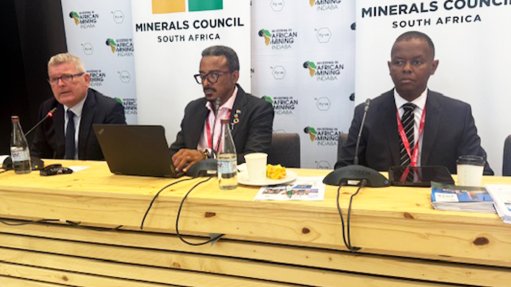Solar-powered 4x4s are totally transforming safaris
For Sipps Maswanganyi, a safari guide with 20 years of experience in the African bush, it was one memorable sighting that sold him on electric safari vehicles.
“I could hear this buffalo panting heavily deep in the bushes,” recalls Maswanganyi, head guide at Cheetah Plains, a luxury outfit in South Africa’s Sabi Sands Game Reserve. Following those faint sounds, he found a 1,500-pound bovine on its last breaths, being taken down by seven stealthy lionesses. “If I was in a noisy diesel vehicle, I would have driven right past, not hearing a thing, and we would have missed it all.”
Although the diesel-hungry Land Rover chugging noisily across the African savanna is a time-honored trope of the safari industry, it’s an image steadily being replaced by eco-friendly, whisper-quiet vehicles powered by sunshine.
“It was an easy decision,” says Cheetah Plains owner Japie van Niekerk of the decision to offer an all-electric fleet of safari vehicles. “They are silent. They’re low on maintenance. And there are huge logistical benefits, as we don’t have to deliver fuel to the lodge out in the bush. But more than that, it’s the right thing. We are guests in nature, so why leave a footprint when we can be silent and blend in?”
Van Niekerk is just one of roughly a dozen early adopters, who since 2014 have begun ditching diesel engines. Now, with the technology becoming more affordable, and a growing awareness around sustainable travel causing safari outfitters to double down on greening their operations, the trend—which transforms the safari experience for guests, too—is finally gaining traction.
DISRUPTING THE DISRUPTION
Today’s electric safari vehicles (ESVs) are typically rebuilt Land Rovers or Toyota Land Cruisers, the diesel-driven industry standards. Private companies in South Africa and Kenya are responsible for making most conversions, replacing the engine, gearbox, and combustion components with an electric motor, batteries, and control system. The extensive retrofit often allows for more whimsical upgrades, too, from in-built seat-warmers to USB charge points. The process costs from $35 000 to $45 000 per vehicle.
Although prices have come down, that’s still a substantial investment, even for the largest safari operators in Africa, which explains why the likes of AndBeyond, Singita, and Wilderness Safaris have yet to add ESVs to their fleets.
“In time, we will convert to electric vehicles,” explains Andrea Ferry, Singita's group sustainability coordinator. “The reason we’re not there yet is simply about priorities. Right now, it’s better to spend our available funds on renewable energy.”
With 67 game vehicles in operation across its lodges in East Africa and Southern Africa, Ferry says that converting Singita’s fleet would cost around $3.5-million. That’s the equivalent of 1 400 bed nights at current rates, money she argues is better spent on taking lodges off the national grid via solar power. Electric motors capable of driving heavy off-road vehicles draw plenty of power, and the solar roof panels that charge the vehicles’ batteries have only recently become efficient enough to meet those needs.
“There’s no point having an electric vehicle charged by a coal-driven national grid. You need to be on solar and charge the vehicle on solar,” agrees Tony Adams, conservation and community impact director at AndBeyond. “Electric vehicles are phenomenal in terms of guest experience, but our focus is on the work we’re doing in the communities—converting onto solar—and the reduction of our overall carbon footprint.”
THE ECONOMIC UPSIDE
For lodges with sufficient solar capacity and capital to spare, electric vehicles offer significant economic advantages.
Converting the three Land Cruisers at Emboo River, in Kenya's culturally rich Maasai Mara National Reserve, cost $105 000, an expense co-founder Valery Super estimates will be recouped in three years, thanks to lowered operational costs. At Ol Pejeta Bush Camp in a rhino-dense corner of northern Kenya, Asilia Africa is running a trial on a single ESV and already counts savings of around $8,000 per year in fuel and maintenance. And Chobe Game Lodge in northern Botswana has had such success with ESV jeeps that it has also invested in electric boats.
“Since we went electric [in 2014], the vehicles have saved close on 50 000 liters of diesel, and the boats have saved 50 000 liters of petrol,” says Chobe’s marketing manager Andrew Flatt, who estimates that the lodge recouped its initial investment in four years.
Capability isn’t a concern. Electrical components in modified safari vehicles are surprisingly rugged; sealed engines allow guides to ford rivers and wade through deep sand, just as they could with a traditional, combustion-driven vehicle.
“In the beginning, I was worried about torque,” says Maswanganyi from Cheetah Plains. “You wonder if you’re going to get stuck in mud or deep sands, but after three years we’ve never had a problem.”
Super, from Emboo River, goes one further: “We’ve been using these to tow stuck diesel vehicles out of the water,” she laughs.
A BETTER, GREENER SAFARI
All this means that guests won’t be limited as to where they can go, much less what they can see. While early conversions suffered from range and recharging issues, current ESVs manage around 100 kilometers (62 miles) on a single charge, roughly twice the distance of your average game drive.
And the benefits are tangible. For wildlife enthusiasts, the metallic rattle of a diesel engine may feel exhilarating—proof of adventure—until it spooks the herd of red lechwe that were about to become supper for a lurking leopard. With the help of electric vehicles, even birders can silently reposition for better views without scaring off a dream sighting. There’s an entire bushveld chorus that most people miss out on.
“Without the noise of a diesel engine, you can really connect to your guests and to nature,” Maswanganyi says.
Even he has been surprised by some of what he’d been missing under the roar of his engine all this time. “You can hear the hyenas call while you’re driving,” he explains. “And on some nights,” he continues, “you can even hear porcupines walking through the bush.”
Article Enquiry
Email Article
Save Article
Feedback
To advertise email advertising@creamermedia.co.za or click here
Comments
Press Office
Announcements
What's On
Subscribe to improve your user experience...
Option 1 (equivalent of R125 a month):
Receive a weekly copy of Creamer Media's Engineering News & Mining Weekly magazine
(print copy for those in South Africa and e-magazine for those outside of South Africa)
Receive daily email newsletters
Access to full search results
Access archive of magazine back copies
Access to Projects in Progress
Access to ONE Research Report of your choice in PDF format
Option 2 (equivalent of R375 a month):
All benefits from Option 1
PLUS
Access to Creamer Media's Research Channel Africa for ALL Research Reports, in PDF format, on various industrial and mining sectors
including Electricity; Water; Energy Transition; Hydrogen; Roads, Rail and Ports; Coal; Gold; Platinum; Battery Metals; etc.
Already a subscriber?
Forgotten your password?
Receive weekly copy of Creamer Media's Engineering News & Mining Weekly magazine (print copy for those in South Africa and e-magazine for those outside of South Africa)
➕
Recieve daily email newsletters
➕
Access to full search results
➕
Access archive of magazine back copies
➕
Access to Projects in Progress
➕
Access to ONE Research Report of your choice in PDF format
RESEARCH CHANNEL AFRICA
R4500 (equivalent of R375 a month)
SUBSCRIBEAll benefits from Option 1
➕
Access to Creamer Media's Research Channel Africa for ALL Research Reports on various industrial and mining sectors, in PDF format, including on:
Electricity
➕
Water
➕
Energy Transition
➕
Hydrogen
➕
Roads, Rail and Ports
➕
Coal
➕
Gold
➕
Platinum
➕
Battery Metals
➕
etc.
Receive all benefits from Option 1 or Option 2 delivered to numerous people at your company
➕
Multiple User names and Passwords for simultaneous log-ins
➕
Intranet integration access to all in your organisation


















